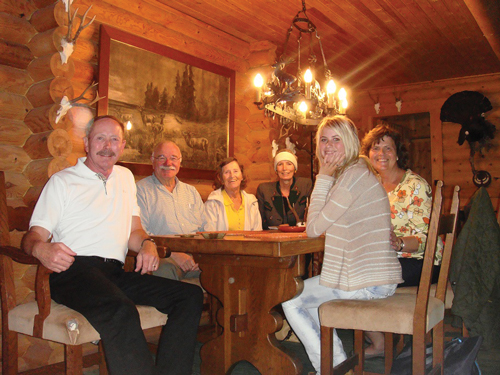Article by John Watkins, San Antonio Academy
My hobbies outside of work include colloquial conversional German. I have family and friends in Germany and Austria, and I enjoy the intricacies of this highly inflective language.
For me, speaking German is a mental exercise that keeps my brain active and keeps me on my toes. You have to focus on gender, case and verb conjugation. I’m often amused by German idioms, which can be quite humorous when translated into English. For example, when Germans use the idiomatic phrase for “keeping a secret,” they say “mit etwas hinter dem Berg halten,” which literally translates to “hide with something behind the mountain.” Similarly, the German equivalent of “to resolve to mend one's ways” is "einen moralischen Katenjammer haben," which translates literally to "have a moral hangover."
The German equivalent of “to resolve to mend one's ways” is “einen moralischen Katenjammer haben,” which translates literally to “have a moral hangover.”
My interest in the language took root when I was a child, as I grew up with my grandparents whose own parents had migrated to Texas from Germany. They lived in a German community, had German birth certificates and marriage certificates alike, and made a practice of speaking German in the home. Later, I married an Austrian girl, and we sometimes spoke (and still do) to each other in German, including those times when we didn’t want our young daughter to know what we’re saying. Of course, that doesn’t work now as she also developed a love of languages.
Learning and speaking this fascinating language is a nice counterpart to my work of studying numbers, which I’ve been doing essentially since I became a CPA. I’ve worked in companies ranging from an international accounting firm to real estate development to products distribution to, since 1997, independent schools. Here in San Antonio, one way I’ve stayed close to German is through the Beethoven Maennerchor, a 149-year-old nonprofit cultural organization whose purpose is to preserve German song, music and language. A few years ago, I began taking a class through the organization on colloquial German. It lasts for two hours on Tuesday evenings, which is also “member night,” featuring German beverages and conversation, along with choir practice for the maennerchor (men’s choir) and damenchor (women’s choir).
I also stay connected to the language through several other cultural organizations. I’m a member of the Vienna opera company, the Wiener Staatsoper, and stream some of their broadcasts. I subscribe to Das Fenster magazine (“the German language magazine in America”). I am also a member of the Texas German Heritage Society in Austin.
When possible, my wife and I travel to Germany and Austria (she is a doctor, so it’s difficult for us to find the time). We especially love the Vienna Christmas markets. Vienna is wonderful—very different in many ways from San Antonio, but in other ways it isn’t. Wherever we travel in the world, we find that individual people we meet are basically the same. We enjoy feeling at home in just about in any country, and speaking the language helps quite a bit.



